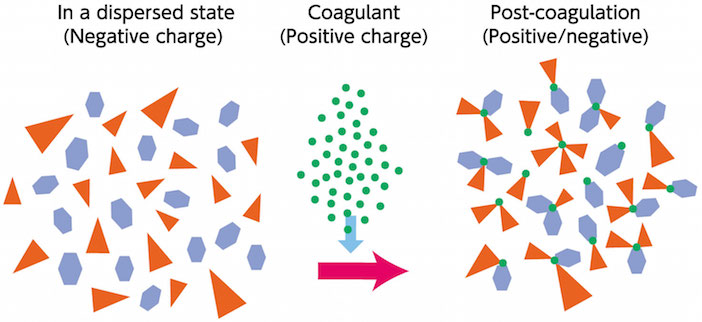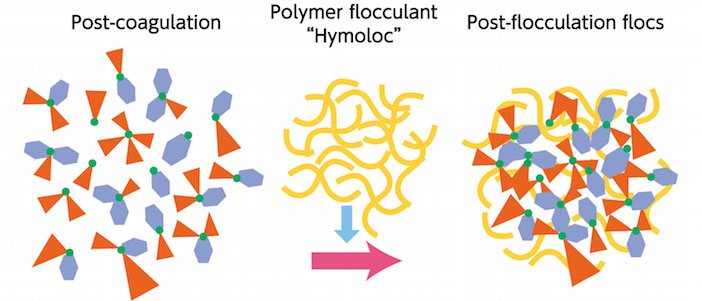Himoloc
Himoloc Products
Hymo offers broad lineup of products which satisfy every customes. The products are ready in diferent forms including emulsion, dispersion, powder bead and paste.
| Forms Property | Emulsion | Dispersion | Powder | Paste |
|---|---|---|---|---|
| Product viscosity | 15 - 1,000mPa・s | 10 - 500mPa・s | - | 50 - Several 100,000 mPa・s |
| Dissolution time | 30 – 60 min | 3 – 10 min | 60 – 120 min | 3 – 120 min |
| Freezing temperature | -3℃〜 | 0℃ | N/A | 0℃ |
| Solvent | Oil | Aqueous solution | None | Aqueous solution |
| Emulsifier | Yes | No | No | No |
| Product storage | FRP tank | Plastic container | Paper bag | Plastic container |
Safety Note
The data and information on this home page is based on our current knowledge and experience. We do not urarantee any result incurred by any other application than normal usage as flocculant and /or coagulant.
Please refer to the Safety Data Sheet (SDS) for information relating to the characteristics, danger and toxicity of Himoloc products. While we implement quality control procedures which emphasis safety and conduct various safety tests, all chemical products have a degree of unknown toxicity, therefore sufficient caution must be taken on handling.
Precautions when handling Himoloc
Agglomerate small particles into large flocs
Flocculation is the process of agglomerating suspended solid in water together to form large flocs so that these flocs can be easily separated by sedimentation, floatation, filtration, dehydration and so on. The chemicals used for this process are called flocculants in general. Strictly speaking, flocculation consists of two steps and we define the first one as coagulation.
Coagulation
Most particles suspended in water possess a negative charge on their surface and repel each other when they come close together. Coagulation is a process of neutralizing the surface charge and destabilizing the suspension by adding something with opposite charges into the water. When the charge is neutralized the small particles tend to agglomerate each other, resulting to form so-called microflocs.

Flocculation
Flocculation in the narrow sense means the second process following the coagulation step to produce the floc with larger size and enough strength for efficient solid-liquid separation. Himoloc, high molecular weight polymers, is one of the best in helping bridge, bind, and optimize the floc conditions.

